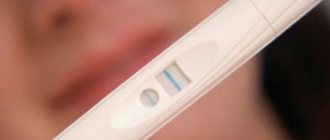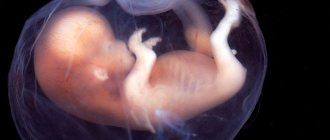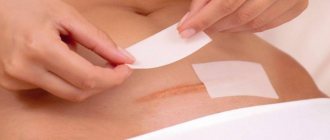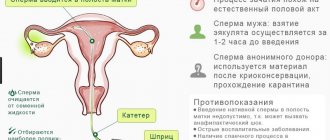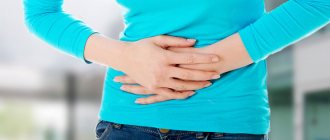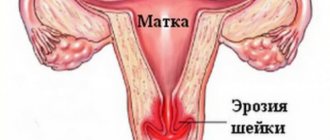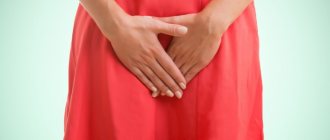This domain is parked by Timeweb
More than hosting.
The domain is parked at Timeweb
Submit your site to Timeweb
Timeweb is a company that hosts client websites on the Internet, registers website addresses and provides rental of virtual and physical servers. Place your website on the Internet - tell the world about yourself! To learn more
Our most popular product
Recommendations before replanting
In order for embryo transfer to be effective, the following preparatory recommendations must be followed:
- Stop drinking alcohol and smoking.
- Adhere to a rational and balanced diet. Exclude spicy, fatty and smoked dishes from the menu.
- Don't overheat. To do this, it is recommended not to visit baths and saunas, and also not to take hot showers and baths.
- Avoid excessive physical activity.
- Do not use medications without the consent of your doctor.
Before implantation of embryos, a woman must take a hygienic shower and shave her pubic hair. Since embryo transfer is performed using a full bladder, you need to drink a glass of clean water before the procedure.
Causes
Causes of constipation after embryo transfer:
- Taking progesterone, which relaxes the intestinal muscles and prevents them from pushing out feces normally.
- Passive lifestyle.
- Poor nutrition.
- Non-compliance with drinking regime.
- Pressure of enlarged ovaries on the intestines.
- Experiences, stress.
Constipation during IVF is most often associated with taking large doses of hormonal drugs to stimulate the ovaries. There is a high risk of encountering a problem in those women who have a history of gastrointestinal problems, as well as in overweight patients. The body simply cannot withstand such stress, and constipation occurs.
Stress can also affect bowel function. If a woman is constantly worried and worried, then this negatively affects the functioning of the gastrointestinal tract and reproductive system. Often patients begin to eat up their worries with simple carbohydrates, which leads to problems with stool and the appearance of excess weight.
The woman’s well-being after the transplant
After embryo transfer is completed, various clinical symptoms may appear. Some of them are physiological in nature and are the norm. Others indicate the occurrence of a pathological process in the body.
Physiological consequences after embryo transfer include:
- Nagging pain in the lower abdomen. They arise for various reasons.
- Increased body temperature. The values slightly exceed the level of 37 degrees.
- Spotting bloody discharge. They indicate the implantation of the embryo into the thickness of the endometrium.
- Bloating, feeling of fullness.
- Pain in the mammary glands.
The above signs are not pathological. During the normal development of pregnancy, they go away on their own within a few days. If symptoms become more severe, it is recommended to consult a doctor. Pathological signs of the post-implantation period are:
- edema syndrome in the extremities;
- nausea and vomiting;
- an increase in abdominal volume due to the accumulation of pathological fluid;
- a sharp decrease in blood pressure;
- heart rhythm disturbance;
- dizziness;
- loss of consciousness;
- high body temperature;
- acute pain in the abdomen.
These symptoms are a reason to immediately consult a doctor and undergo a diagnosis.
Factors influencing successful replanting
This process includes two important conditions:
- The combination and interaction of the tissue structure of the uterus and the embryo;
- Correspondence of time and conditions of embryo transfer.
Doctors consider embryo transfer to coincide with this period with the formation of an implantation window.
The implantation window is a period during which favorable conditions are created in the uterus for interaction with the embryo.
It has been studied that favorable conditions for internal tissue are created on the twentieth day of the cycle. The period may be delayed for some time due to the intensity of use of hormonal drugs.
What to do in the first hours after embryo transfer?
Many women wonder what to do after embryo transfer. Embryo transfer is a painful and quick procedure. Its duration is about 5 minutes. A certain number of embryos are introduced into the uterine cavity using a thin catheter. Attachment of the embryo must occur within 40 hours after replanting. The success of the protocol can be clearly determined only after 2 weeks.
A positive IVF result depends on various factors. These include the professionalism of doctors, the woman’s age, the presence of concomitant diseases, her lifestyle, and the readiness of the endometrium for the implantation of embryos. In addition, an important factor is compliance with medical recommendations regarding the post-implantation period.
It is recommended to remain in bed for the first 2-3 hours after the transfer. Position in bed with the leg end raised. Further recommendations are related to lifestyle and nutrition after IVF.
First week
All symptoms after successful embryo transfer during IVF by day usually begin on the third 3rd day. A woman's body is a very delicate mechanism, capable of responding to the smallest changes. You need to learn to listen and correctly understand your body language.
Perhaps one of the real first signs of successful implantation, and, consequently, the onset of pregnancy, is considered to be small spotting - implantation bleeding.
At the moment when the embryo actually implants into the wall of the uterus, the organ, under the influence of hormones, is slightly loosened and saturated with blood, and the endometrium thickens.
The attachment process itself sometimes causes the smallest blood vessels to burst, hence the blood. The discharge continues for 1-2 days. On average, this begins 3-4 days after embryo transfer, and in the case when 5 day-old embryos were transferred, it occurs earlier, on the second DPP.
In parallel with this phenomenon, expectant mothers feel some kind of lumbago, tingling in the lower abdomen, a slightly nagging aching pain, sometimes radiating to the legs or lower back. There is a feeling of fullness of the uterus, this is due to increased blood flow in the pelvic area
But, it is important that these symptoms may also indicate a threat of protocol failure, so if such phenomena occur, you should take care of yourself during these days and inform your doctor about them
A powerful surge of progesterone in early pregnancy leads to painful sensitivity in the breasts. It swells, becomes full, and the nipples may become dark in color. This symptom will especially accompany women who have had similar symptoms during menstruation.
What to do in the first few days after IVF?
The embryo begins to implant on the third day after replanting. Before this, it simply resides in the uterine cavity. The process of penetration into the thickness of the endometrium occurs over several days. During this period, nagging pain in the lower abdomen and spotting bloody discharge from the genital tract may be observed.
The first days after the transplant, the woman needs to spend more time alone. In addition, medical recommendations after IVF include:
- proper rest and sleep;
- maintaining a rational and balanced diet;
- elimination of physical and psycho-emotional overloads;
- restriction of sexual contacts;
- avoiding overheating and hypothermia;
- sufficient exposure to fresh air.
How embryos mature
In order to carry out embryo transfer, eggs are collected from a woman, which after fertilization are placed in a test tube for development. The egg retrieval process is carried out under general anesthesia. The resulting zygotes are grown for several days. When the embryos reach a state in which they can easily implant into the uterus, doctors decide to implant them into the body. This date is determined by an embryologist and a reproductive specialist.
Usually, two embryos are selected for a future pregnancy; for women over 40, three embryos are allowed to be selected. If a married couple plans to have more children in the future, cryopreservation (freezing) of the remaining embryos is possible, which allows them to remain viable for a long time. Doctors confirm that successful pregnancy after IVF does not directly depend on whether regular eggs or frozen material were used.
Before the fertilization procedure, a married couple must follow certain rules. A woman should avoid psycho-emotional disorders, stop smoking and drinking alcohol, avoid spicy and fried foods, as well as physical activity.
A man must adhere to certain rules. A few days before donating sperm, you should carefully monitor your diet and not take medications. Before donating sperm, it is advisable to abstain from sexual intercourse for 3-4 days. If there are viral or infectious diseases, the sperm donation procedure should be postponed.
Recommendations after IVF: advice from doctors
To increase the chances of successful embryo implantation, you must adhere to medical recommendations. This is especially true in the first 3 weeks after replanting.
Correct posture for lying down
After the transfer, the woman is asked to lie down for 1-2 hours. In this case, it is necessary to be in a horizontal position in a comfortable position.
The foot end of the bed should be raised. To improve blood circulation, it is recommended to spread your legs slightly. In the first hours after implantation, it is forbidden to visit the toilet.
Physical and emotional stress
- The first few weeks after implantation, it is necessary to avoid psycho-emotional stress. Excessive physical activity is prohibited. However, complete lack of activity is also excluded. Constant bed rest provokes blood stagnation and impaired microcirculation. Therefore, doctors recommend regular walks in the fresh air at a comfortable pace.
- The first weeks after replanting you should not do household chores. They can cause physical fatigue.
Stress experienced at the early stage of implantation contributes to embryo rejection. Therefore, for the first time after replanting, it is necessary to protect yourself from negative emotions.
Chair
Constipation is a common occurrence after IVF. The situation is complicated by the fact that a woman is contraindicated to push and use an enema. If the problem begins to bother you greatly, you should consult a doctor to solve it. Based on individual data, the doctor will select the necessary medicine.
What to do if you are constipated
Constipation can occur due to long-term use of hormonal drugs used to stimulate ovulation. This is related to the prevalence of this condition. Long-term stagnation of feces in the intestines negatively affects the development of the fetus, as well as the general well-being of the woman. To combat constipation use:
- Changes in diet. The diet includes a sufficient amount of fiber, which improves intestinal motility.
- Engage in light physical activity.
- After consulting with your doctor, take approved medications. Preference is given to the drug Duphalac. It is approved for use during pregnancy and lactation.
Intimacy
Any sexual contact must be excluded. The reason is that sexual intercourse increases the risk of developing uterine hypertonicity.
Hygiene
Maintaining intimate hygiene is necessary to prevent various diseases. In the first days after embryo transfer, douching is prohibited. It is also not recommended to take hot baths or showers. Contraindications include visiting baths and saunas.
Proper nutrition
- A woman should avoid eating salty, smoked, fried, and spicy foods. Doctors do not recommend following a diet. Nutrition should be complete and balanced. The daily menu should contain vitamins, minerals, micro- and macroelements. If you have constipation, you should include a sufficient amount of fiber in your diet. It improves intestinal motility, promoting the movement of feces.
- Compliance with the drinking regime is also included in the list of recommendations. It is necessary to drink a comfortable amount of liquid so as not to provoke the development of edema. On average, you need to consume 2-2.5 liters of clean water per day. For drinks, preference is given to green tea, fruit juice and clean water without gases. Alcohol is strictly prohibited.
Proper sleep
You need to spend at least 8 hours a day sleeping. The ideal option is to go to bed and wake up at the same time. This will help normalize biorhythms.
This recommendation applies not only to the early period after embryo transfer.
Bed rest
Strict bed rest is necessary in the first 1-2 hours after embryo transfer. Then it is recommended to gradually increase physical activity. Prolonged stay in a horizontal position leads to blood stagnation and impaired microcirculation.
Therefore, regular walks in the fresh air will have a positive effect on your health, in contrast to constant bed rest.
Car driving
Doctors give a recommendation that it is not recommended to drive for the first 5 days after embryo transfer. This is due to the nervous situation on the roads. Negative emotions negatively affect a woman's health.
Therefore, within a few weeks it is necessary to abandon the independent use of a personal car.
Air travel
Doctors have no clinical evidence that airplane flights affect implantation processes. However, long trips lead to disruption of biorhythms, fatigue and sleep disturbances. Therefore, in the first weeks after embryo transfer, it is recommended to avoid flying.
Physical activity
- Sports and heavy physical activity are contraindicated.
- It is necessary to minimize the period of sitting. The ideal option for physical activity is walking.
- Gentle physical activity will ensure good blood flow to all organs and tissues.
Medicines and doctor's prescriptions
Medicines are prescribed when the endometrium is not thick enough to accept an embryo. To prevent embryo rejection, doctors may prescribe certain progesterone-containing medications. Their use is carried out in the first few weeks of pregnancy. Another group of drugs that can be prescribed to prevent blood clots are antiplatelet agents.
Emergency situations
The transplantation is canceled if the woman becomes ill with a viral disease. In this case, the resulting embryos are cryopreserved.
If a woman becomes ill after embryo transfer, then the use of medications is undesirable. An exception is paracetamol, which is taken to cope with an increase in body temperature. Traditional medicine is used to treat the virus. These include antiseptic gargling with herbal solutions, rinsing the nasal passages with a weak saline solution, and drinking plenty of warm fluids. If these methods are ineffective, the doctor prescribes drug therapy that has minimal effect on the developing embryo.
How to eat before, during and after IVF
/ About the IVF procedure
The in vitro fertilization procedure is accompanied by a huge load on the body, so lifestyle plays a significant role in achieving the goal, including nutrition during IVF. How is it different from the usual one? Which foods should you increase your consumption of, and which ones, on the contrary, should you give up?
Lifestyle and nutrition in preparation for IVF
The process of planning pregnancy, naturally or artificially, involves switching to proper nutrition. Correctness in this case means adherence to several principles:
Quality
It is important that the products a woman consumes are not only fresh, but also as natural as possible, without preservatives and other chemical additives that hinder the functioning of systems and organs. It is better to give preference to boiled, stewed or steamed dishes.
Balance
This principle suggests that it is necessary to increase the amount of fiber and protein consumed, but, on the contrary, the amount of carbohydrates and fats should be reduced. Fiber is necessary to improve digestion, proteins reduce the likelihood of hyperstimulation syndrome. In turn, animal fats increase cholesterol levels, and carbohydrates increase the load on the pancreas.
USEFUL INFORMATION: IVF waiting list under compulsory medical insurance
Ease of digestion. The IVF procedure affects the digestion process, since hormonal agents in large quantities cause bloating, lead to gas formation and constipation. To minimize the risk of these unpleasant symptoms, it is better to prepare the digestive system for stress in advance.
In addition, it is important to give up any diets - if they are not related to vital needs due to some chronic diseases. It is better to do this 1-2 weeks before the protocol so that the body returns to normal
Nutrition in the protocol
Nutrition in the IVF protocol involves the consumption of protein foods
From the very beginning of the IVF protocol until the determination of the hCG level, it is important to consume a large amount of protein foods. This diet is considered as one of the measures to counteract ovarian hyperstimulation
However, you should be careful when choosing meat.
This diet is considered as one of the measures to counteract ovarian hyperstimulation. However, you should be careful when choosing meat.
For example, it is worth eating chicken, but it is better to buy products from trusted manufacturers, since antibiotics and growth hormones are used in the production of chicken.
How to maintain a healthy lifestyle after embryo transfer?
A woman needs to maintain a correct lifestyle. For this it is recommended:
- Adhere to a rational and balanced diet. The diet should include fresh vegetables, fruits, herbs, fiber, vitamins and elements. It is not recommended to eat fatty, spicy, salty foods. This recommendation applies to the entire period of pregnancy.
- Avoid excessive physical activity. Hiking in the fresh air is allowed. Sports activities are excluded.
- Maintain drinking regime. The norm is 2-2.5 liters of water per day. But these indicators are individual.
Treatment
What to do if constipation occurs during IVF? First of all, you need to consult a doctor so as not to harm the embryo. Only a specialist can choose effective treatment methods, taking into account the characteristics of a particular patient’s condition. Therefore, it is better not to take risks and not self-medicate.
Diet
With the help of a balanced and proper diet, you will be able to avoid digestive problems during the period of artificial insemination. Therefore, it is recommended to simply review your daily menu.
The diet after IVF should include the following foods:
- Salads made from fresh vegetables that contain a lot of fiber. Vegetables can be used to make stews, soups and other baked dishes.
- Dietary varieties of meat and fish, for example, rabbit, veal, chicken, seafood.
- Fermented milk products, namely kefir and yogurt.
- Fresh and dried fruits, namely prunes and raisins.
- Corn, oat and millet porridge.
- Vegetable oils.
- Teas, juices, compotes, fruit drinks, decoctions.
A balanced diet after IVF will help restore normal digestive processes. The key is to cook it in a healthy way with little fat, such as steaming or baking. It is also recommended to eat frequently in small portions. You need to drink more during the day to avoid stool stagnation.
It is recommended to exclude the following products from the daily menu:
- Smoked, fried, spicy and canned foods.
- Fast food that uses a lot of fat, such as French fries or hamburger.
- Rice and semolina porridge.
- Bakery and confectionery products.
- Strong coffee and tea.
Medicines
Constipation can be treated with medications only after consulting a doctor.
Safe drugs that are recommended for pregnant women and children include:
- Glycerin suppositories. They are completely safe for a woman’s body, since they are not absorbed into the blood, but simply have a gentle effect on the walls of the colon and make them work. Ultimately, it is possible to speed up the natural processes of defecation.
- Preparations based on lactulose, for example, Forlax or Duphalac. The advantage of such drugs is that they are not absorbed into the intestinal walls, but are completely eliminated from the body and push out stagnant feces naturally.
Folk remedies
You can try one of the effective folk recipes, but only after consulting a doctor.
So, some of them:
- Prunes can be ranked first in terms of effectiveness and safety. Dried fruits are allowed for both adults and children. It is enough to eat a few prunes a day to improve digestion. Based on dried fruits, you can cook compotes, decoctions, make purees and desserts.
- Fruit and vegetable juice. For example, you can mix an apple with beets and carrots. This juice contains fiber, which cleanses the stomach of toxins.
- Pour a large spoonful of bran into a glass of kefir and leave it for the whole day. It is recommended to drink the resulting mixture at night in order to get rid of stagnant stool naturally in the morning.
- In the morning before breakfast, it is recommended to drink a glass of warm water.
- Before going to bed, drink a glass of kefir with a spoon of vegetable oil.
USEFUL INFORMATION: Breast Cysts and Protocol
Exercises
As you know, physical activity helps digestion processes. At the same time, during artificial insemination, on the contrary, active sports are contraindicated. You need to remain calm, rest and sleep more to avoid miscarriage.
If you have digestive problems, it is recommended to walk more in the fresh air. In the morning, you can do light exercises to warm up your muscles. While lying in bed, you can do light exercises with your legs, for example, “bicycle”. A light abdominal massage is also suitable to start the digestion process. In the morning, it is recommended to drink a glass of warm water before breakfast.
Is it possible to take a pregnancy test after IVF?
A reliable sign of pregnancy is a blood test to determine the level of hCG. An increase in hormone concentration indicates successful implantation of the embryo with the development of pregnancy. It is recommended to carry out the study 10-14 days after replanting. A test is considered an express way to detect pregnancy. It is also sensitive to hCG content. Therefore, it is recommended to carry out it 2 weeks after embryo transfer.
Carrying out the test too early may result in false negative results. This will cause negative emotions that negatively affect the woman’s body.
Doctors do not advise rushing to take a pregnancy test.
Causes of constipation
There are several reasons for constipation after in vitro fertilization:
- Hormonal therapy. The IVF procedure requires preparation, which includes hormonal therapy. Progesterone is the main hormone of pregnancy; it helps with the consolidation of the embryo and gestation of the fetus. Progesterone also acts on smooth muscles; it relaxes the intestinal muscles, which slows down the movement of feces through the gastrointestinal tract.
- Stress. After embryo transfer, when the result is still unclear, the woman is in a severe stressful situation, which leads to disruption of the digestive system.
- Lack of physical activity. After the IVF procedure, doctors recommend reducing physical activity and getting more rest.
- Medicines. Constipation can be caused by drugs containing iron and calcium that were taken in preparation for IVF.
- Insufficient fluid intake.
- At 8-9 months of pregnancy, constipation is caused by an enlarged uterus, which puts pressure on the intestines and makes it difficult to pass stool.
